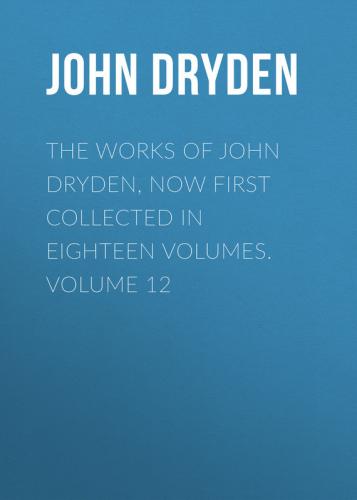And whan that Pertelote thus herd him rore
She was agast, and saide, herte dere,
What aileth you to grone in this manner?
Ye ben a veray sleper, fy for shame.
And he answered and sayde thus; Madame,
I pray you that ye take it not agrefe;
By God me mette I was in swiche mischiefe
Right now, that yet min herte is sore afright.
Now God (quod he) my sweven recche aright,
And kepe my body out of foule prisoun.
My mette how that I romed up and doun
Within our yerde, wher as I saw a beste
Was like an hound, and wold han made areste
Upon my body, and han had me ded:
His colour was betwix yelwe and red,
And tipped was his tail and both his eres
With black, unlike the remenant of his heres:
His snout was smal, with glowing eyen twey;
Yet for his loke almost for fere I dey:
This caused me my groning douteles.
Avoy, quod she; fy on you herteles.
Alas! quod she, for by that God above
Now han ye lost myn herte and all my love,
I cannot love a coward by my faith;
For certes, what so any woman saith,
We al desiren, if it mighte be,
To have an husbond hardy, wise, and free,
And secree, and non niggard ne no fool,
Ne him that is agast of every tool,
Ne non avantour by that God above.
How dorsten ye for shame say to your love
That any thing might maken you aferde?
Han ye no mannes herte and han a berde?
Alas! and con ye ben agast of swevenis?
Nothing but vanitee, God wote, in sweven is.
Swevenes engendren of repletions,
And oft of fume, and of complexions,
Whan humours ben to habundant in a wight.
Certes this dreme which ye han met to-night
Cometh of the gret superfluitee
Of youre rede colera parde,
Which causeth folk to dreden in her dremes
Of arwes, and of fire with rede lemes,
Of rede bestes that they wol hem bite,
Of conteke, and of waspes gret and lite,
Right as the humour of melancolie
Causeth ful many a man in slepe to crie
For fere of bolles and of beres blake,
Or elles that blake devils wol hem take.
Of other humours coud I telle also,
That werken many a man in slepe moch wo;
But I wol passe as lightly as I can.
Lo Caton, which that was so wise a man,
Said he not thus? Ne do no force of dremes.
Now, Sire, quod she, whan we flee fro the bemes
For Goddes love as take som laxatif:
Up peril of my soule, and of my lif
I counseil you the best, I wol not lie,
That both of coler and of melancolie
Ye purge you; and for ye shul not tarie,
Though in this toun be non apotecarie,
I shal myself two herbes techen you
That shal be for your hele and for your prow,
And in our yerde the herbes shall I finde,
The which han of hir propretee by kinde
To purgen you benethe and eke above.
Sire, forgete not this for Goddes love;
Ye ben ful colerike of complexion;
Ware that the sonne in his ascention
Ne finde you not replete of humours hote;
And if it do, I dare wel lay a grote
That ye shul han a fever tertiane,
Or elles an ague, that may be your bane.
A day or two ye shul han digestives
Of wormes or ye take your laxatives,
Of laureole, centaurie, and fumetere,
Or elles of ellebor that groweth there,
Of catapuce or of gaitre beries,
Or herbe ive growing in our yerd that mery is;
Picke hem right as they grow, and ete hem in.
Beth mery, husbond; for your fader kin
Dredeth no dreme: I can say you no more.
Madame, quod he, grand mercy of your lore;
But natheles as touching Dan Caton,
That hath of wisdome swiche a gret renoun,
Though that he bade no dremes for to drede,
By God, men moun in olde bookes rede
Of many a man more of auctoritee
Than ever Caton was, so mote I the,
That all the revers sayn of his sentence,
And han wel founden by experience,
That dremes ben significations
As wel of joye as tribulations
That folk enduren in this lif present:
Ther nedeth make of this non argument;
The veray preve sheweth it indede.
On of the gretest auctours that men rede
Saith thus, that whilom twey felawes wente
On pilgrimage in a ful good entente,
And happed so they came into a toun
Wher ther was swiche a congregatioun
Of peple, and eke so streit of herbergage,
That they ne founde as moche as a cotage
In which they bothe might ylogged be,
Wherfore they musten of necessitee;
As for that night, departen compagnie;
And eche of hem goth to his hostelrie,
And toke his logging as it wolde falle.
That on of hem was logged in a stalle,
Fer in a yard, with oxen of the plough,
That other man was logged wel ynough,
As was his aventure or his fortune,
That us governeth all, as in commune.
And so befell that long or it were day
This man met in his bed, ther as he lay,
How that his felaw gan upon him calle,
And said, Alas! for in an oxen stalle
This night shal I be mordred ther I lie;
Now help me, dere brother! or I die:
In alle haste come to me, he saide.
This man out of his slepe for fere abraide;
But whan that he was waken of his slepe
He
